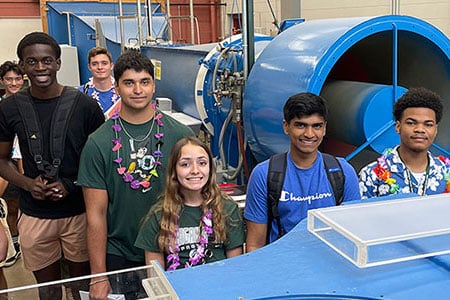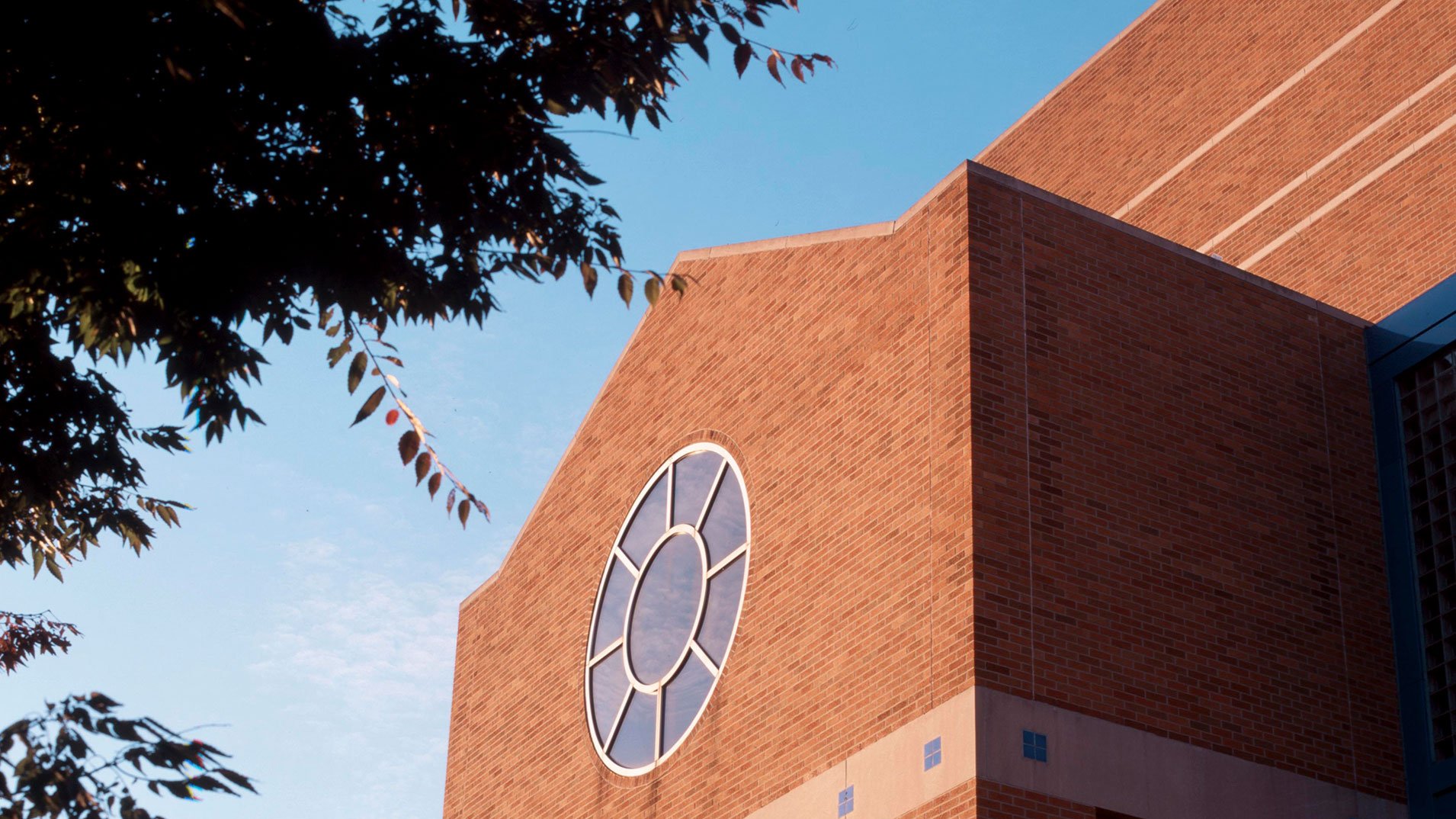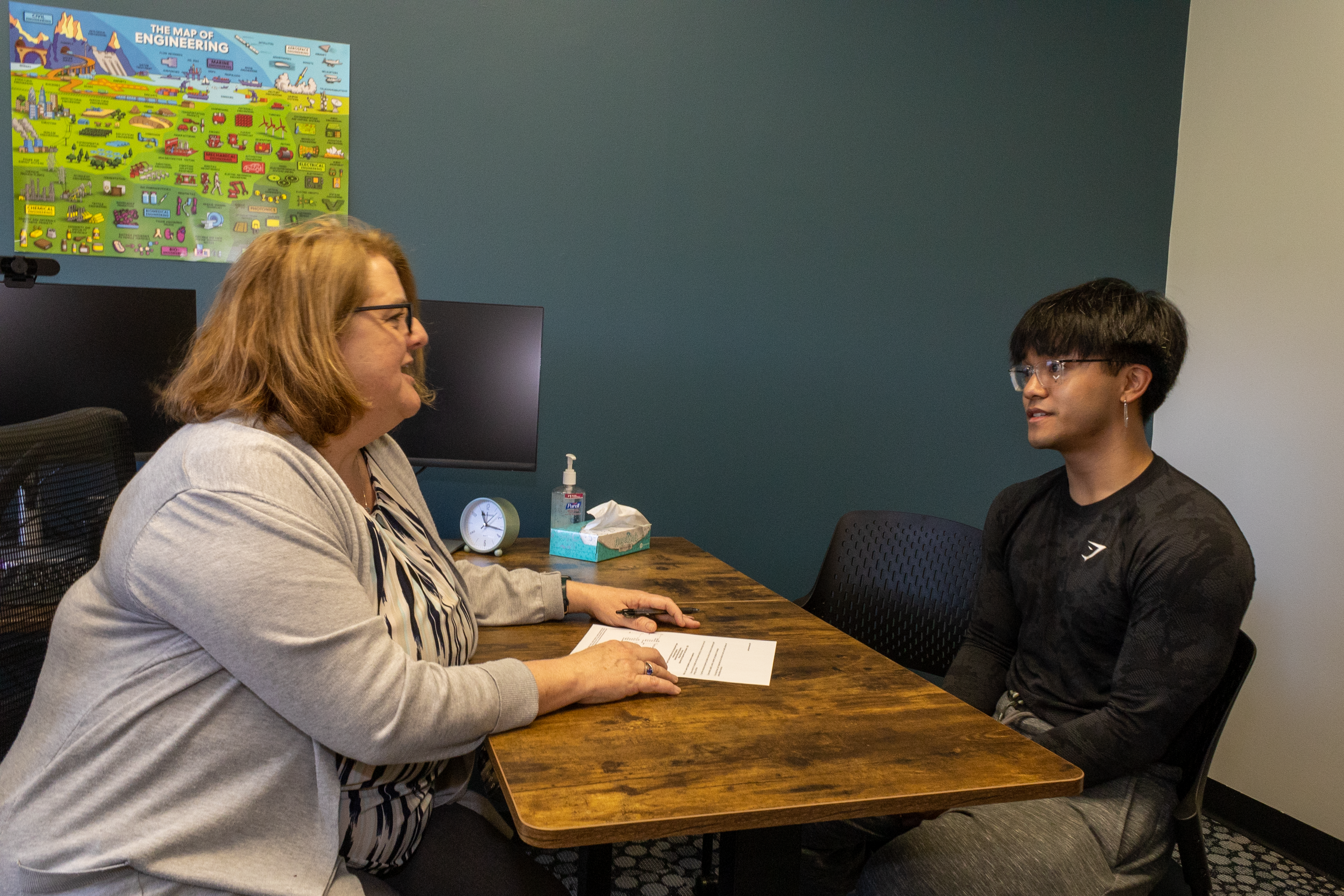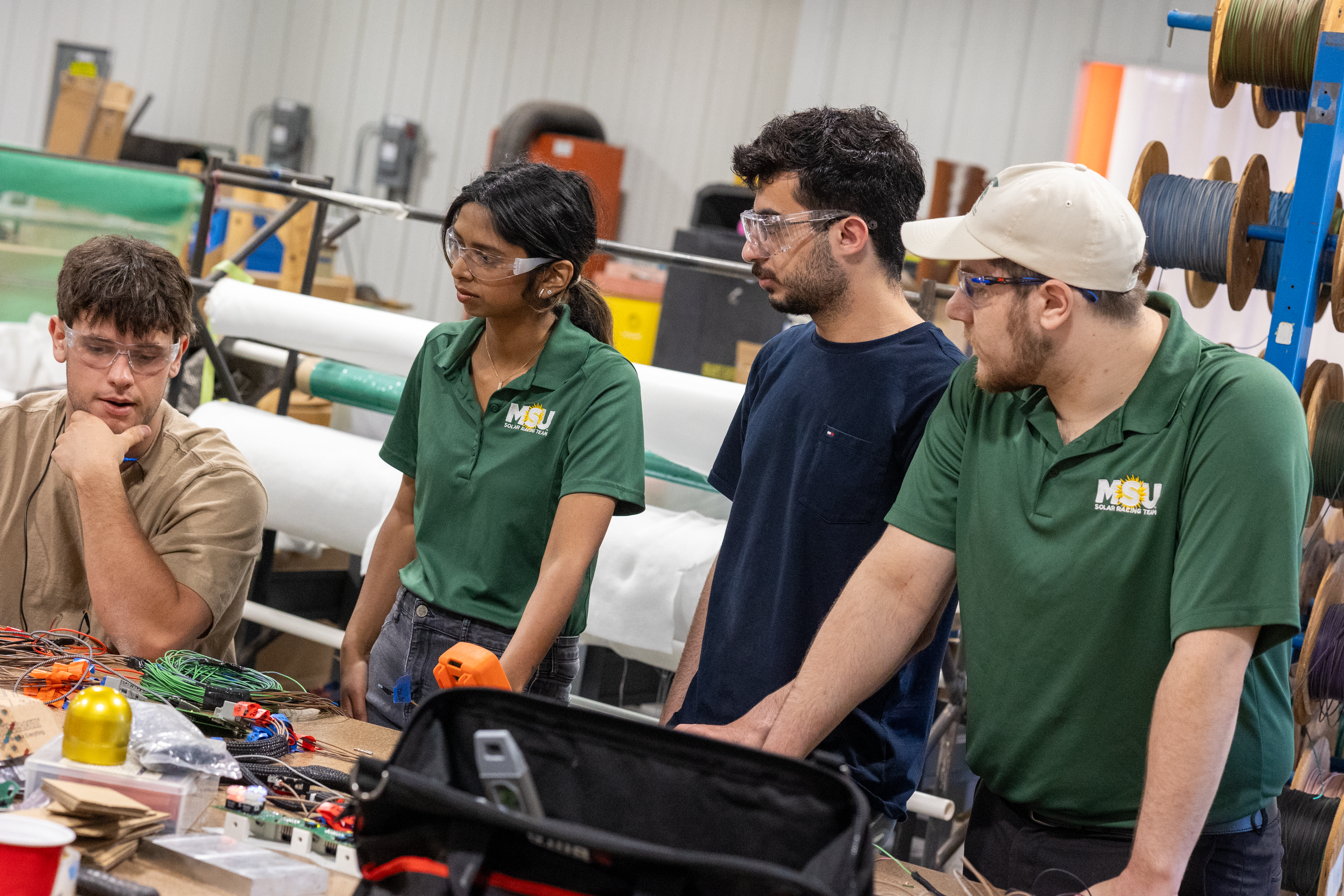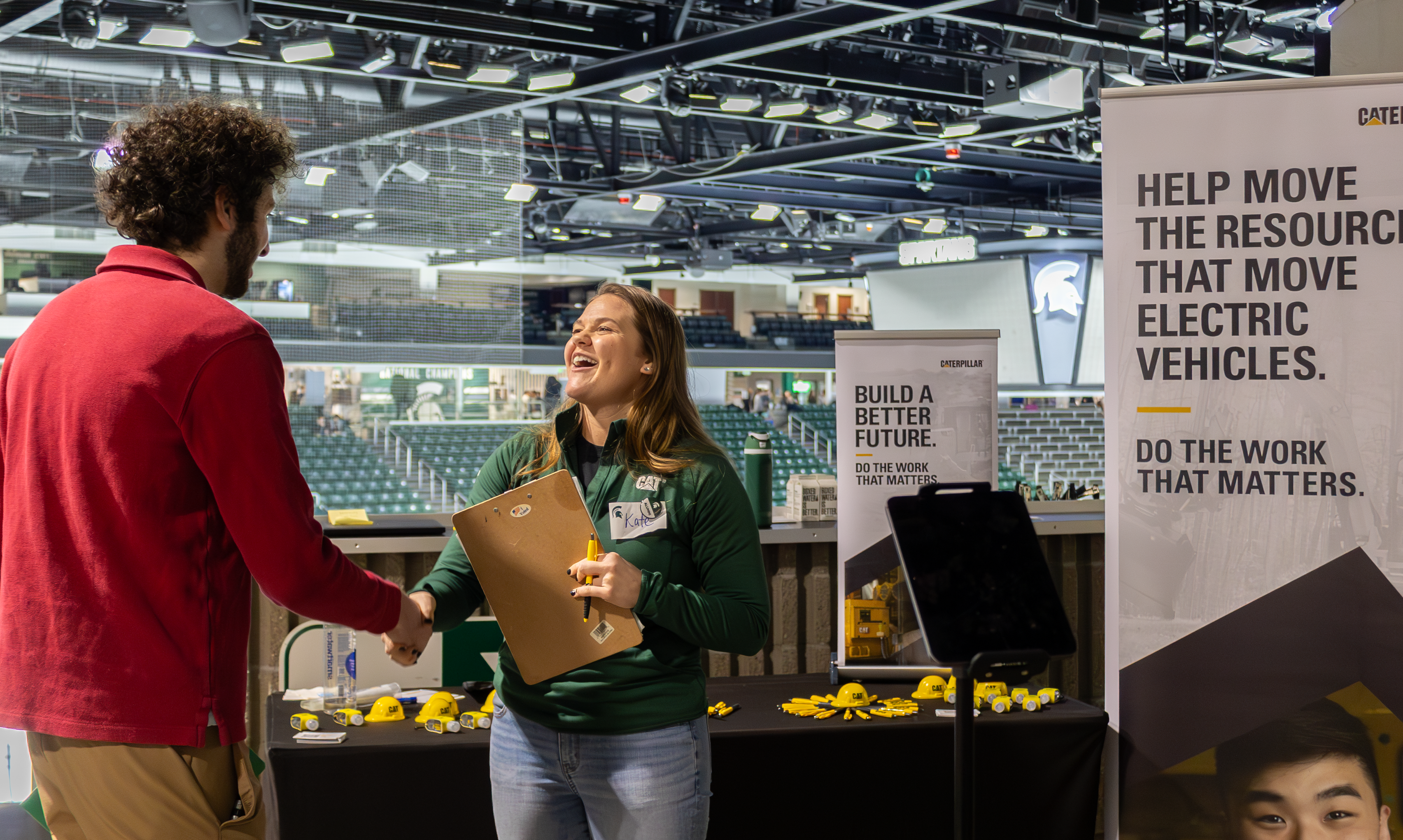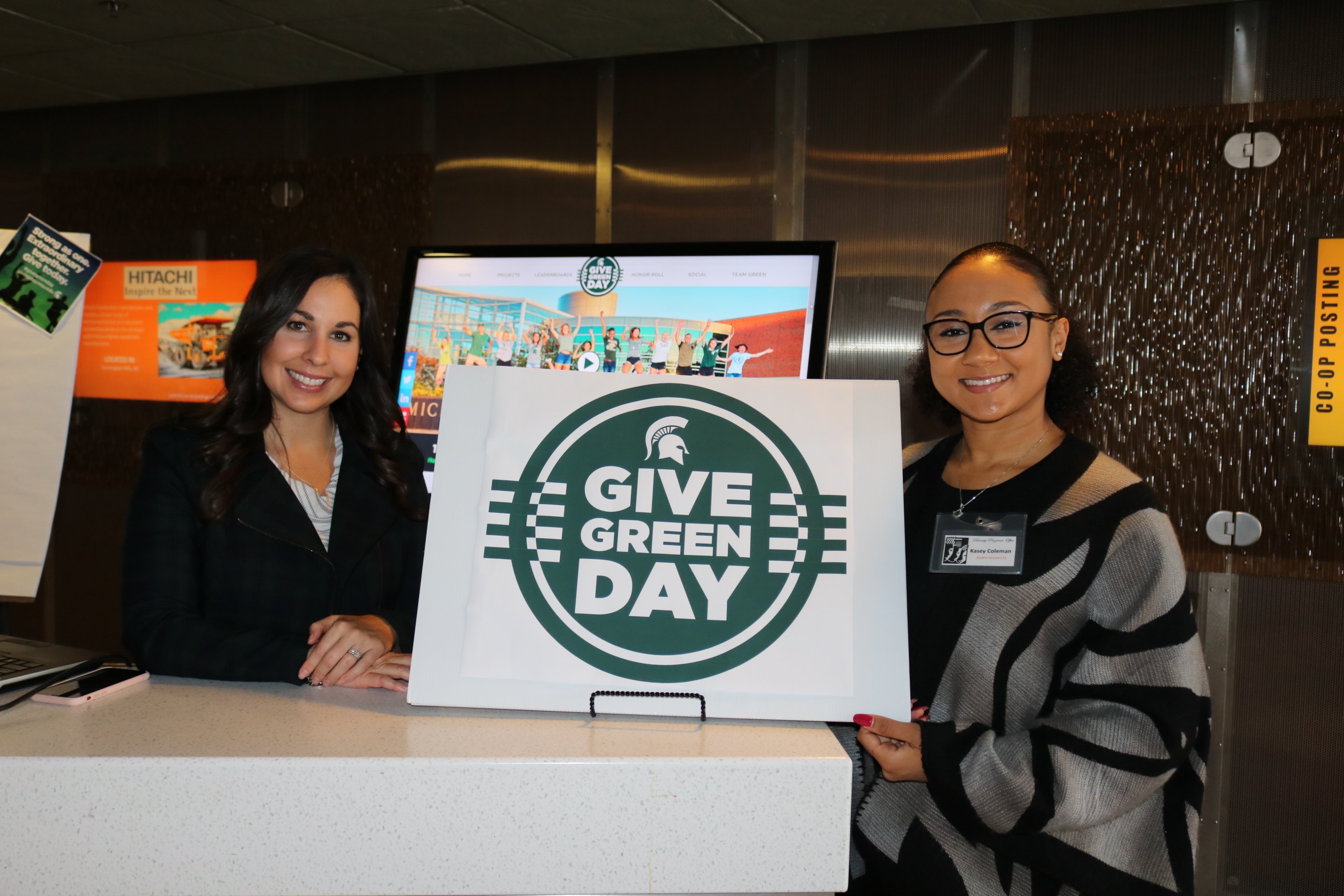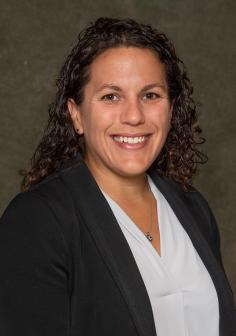A researcher at Michigan State University is creating new dental adhesives that diminish the need to go back to the dentist.
Caroline R. Szczepanski has received a five-year, almost $785,000 grant to devise a stronger and more permanent adhesive interface for dental restorations. She is a polymer science expert and an assistant professor of chemical engineering and materials science.
The funding is an early career award from the National Institute of Dental and Craniofacial Research (NIDCR), which is part of the National Institutes of Health.
Szczepanski is exploring new materials to counter the stresses that the average mouth puts on the bonding interlock of dental restorations.
"There are two reasons a dentist fills a cavity," Szczepanski explained. "There's the initial find that the tooth is degrading, which is repaired by drilling out a part of the damaged tooth and filling the cavity with synthetic material, but more often a dentist is replacing an old filling. The filling may have cracked or fallen out. Existing aesthetically-pleasing filling materials typically last only a decade, so some fillings are replaced over and over again during a patient's lifetime.

"We are developing new synthetic materials that eliminate those replacement rounds by strengthening the interface between the filling and the patient's tooth surrounding the cavity," she continued.
"We're developing new types of adhesives which prevent that failure at that interface. Ideally, they will be durable enough to stick together for the entire lifetime of the patient."
Szczepanski's interdisciplinary background helps advance her work. She is an expert in both polymer and chemical engineering, and she has recruited restorative dentistry professionals to her early career mentoring team, including Professor Ana Bedran-Russo at Marquette University and Professor Marco Bottino at the University of Michigan. They, along with University Distinguished Professor Christina Chan at MSU, will provide guidance and training in the analysis of dental material performance and compatibility.
"My goals are to create materials that are straightforward and simple for clinicians to implement, and that patients will never have to go back to the dentist to get a filling replaced, thus reducing the number of procedures, costs, and complications," she added.
